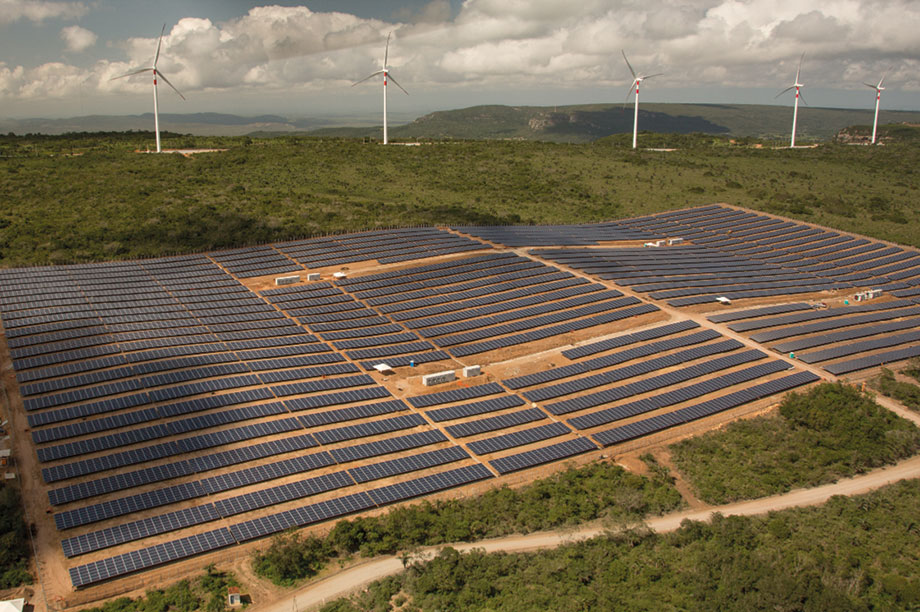Two of the country’s largest renewable-energy generators, Greenko and ReNew Power, won 900MW and 300MW, respectively, in a wind-solar-storage hybrid tender held by the Solar Energy Corporation of India (SECI).
The tender, issued in August 2019, allowed a combination of wind and solar with energy storage and offered bidders a two-part tariff.
The developers bid peak-tariff rates to provide an assured supply of 600MW for six hours during two periods of daily peak loads on a day-ahead on-demand basis.
For non-peak hours, the tender fixed the tariff at INR 2.7/kWh ($0.03/kWh).
Unsurprisingly, the peak tariffs offered were high as the bids had to integrate a storage component. Greenko’s secured INR 6.12/kWh ($0.086/kWh) for its 900MW, while ReNew Power’s 300MW is priced at INR 6.85/kWh ($0.096/kWh).
However, these prices are 30-40% below those in a recent US tender for renewables with storage, which were $0.12-$0.14/kWh.
The ability of renewables to provide dispatchable power in combination with storage could effectively blur the last line of resistance against wind and solar power integration into the grid.
"It’s a unique tender [in India], and the first of its kind where the bidders will be required to deliver firm renewable energy. It will definitely help improve the integration of renewables into the grid and make green power more acceptable to distribution companies," said Sumant Sinha, managing director at ReNew Power.
For the utilities, the contract with sellers also offers price stability for 25 years and helps them meet their renewable purchase obligation.
The federal government has mandated all state utilities to procure at least 21% of their total energy requirements from renewable sources by 2021-22.
The success of this tender suggests India is willing to embrace new technology and business models to push renewables.
Early this year, the Ministry of New and Renewable Energy (MNRE) issued a draft policy on "round-the-clock renewable power" that suggested the bundling of renewables with thermal-power generation.
SECI has released an expression of interest to allow existing or under-construction wind and solar projects that have no firm offtake agreements or whose contracts are expiring, to bid for supply deals with SECI.
The latter, in turn, will sell the power to private commercial and industrial (C&I) consumers that are obligated to buy renewable power.
Although the tender is limited to projects that are currently stranded, by opening it up to all generators it could create massive demand from private entities.

.png)


.png)










